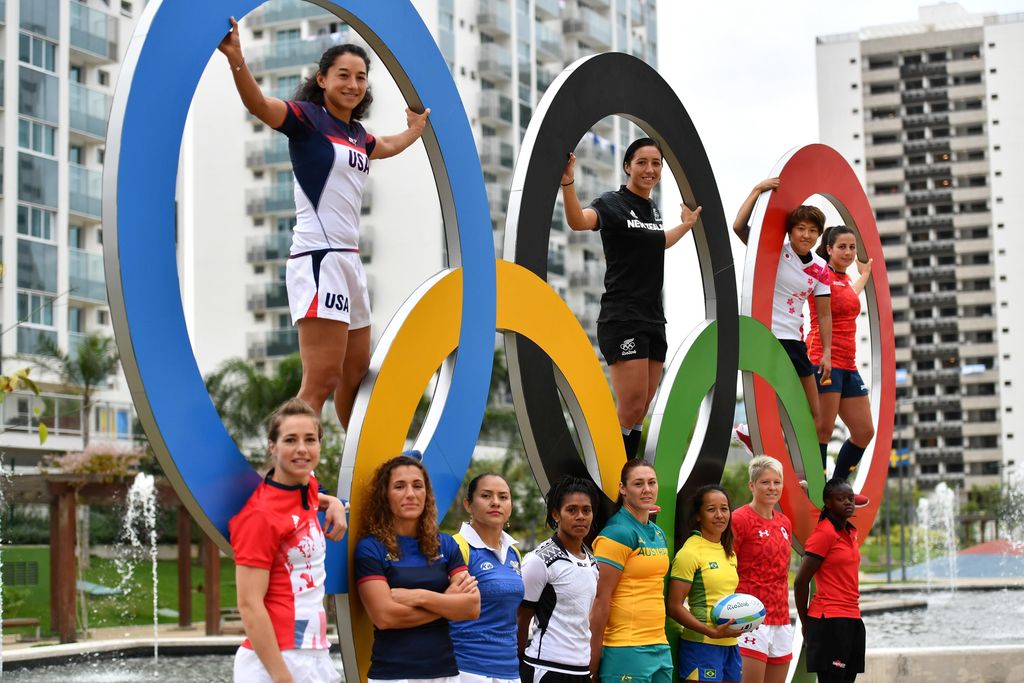Alejandra Betancur agreed to give rugby union a try primarily as an attempt to get some peace, but 12 years later the sport gave her the platform on which to live out her Olympic dream.
Betancur was a 17-year-old student at the Universidad de Antioquia (UDEA) in Medellin, Colombia, in 2004 when she was approached by the coach of the university’s women’s team.
He was adamant the youngster should pick up an oval ball, and six months later – “after so much insisting” – she relented and attended a training session.
“That day was a life-changer,” Betancur said.
“I felt joy and freedom running with a ball in my hand. The best was at the end of that training run I felt as if I belonged. That feeling of sisterhood kept me in the game.”
It was the start of a career that would hit a highpoint in 2016 when Betancur captained Colombia at the Rio 2016 Olympic Games, having led the team to the CONSUR Women's Sevens Championship title the previous June.
The Olympic dream
Colombia would go on to lose each of their five games in Rio but rubbing shoulders with world-class athletes from different sports and backgrounds left a mark.
Asked to describe her experience in Brazil, Betancur replied: “The most marvellous in my life.
“You don’t know what it will be like until you are in the Olympic Village surrounded by star athletes, awestruck at times, bumping into them in the dining room.

“That is the moment you realise you are part of the elite who worked hard to be at a Games and made it.
“Once you are playing, the feeling is unique. Each ball, each tackle are good memories for me. They remind me of all the work we did in Colombia, fighting against everything to be there, to be playing, to be free.”
Leading her country against Australia, Fiji and USA at the Deodoro Stadium was an honour for Betancur, but one that came with its own challenges.
“My predecessors [as captain] had set the bar very high and I took over a team with big changes and challenges,” she said.
Inspiring future generations
“It took the best out of me at times, it made me hate myself at times and made me think hard.
“Thanks to those moments, I managed to change, put the team ahead of my personal needs and that in turn made me a better person. It was certainly one of my best personal experiences.”
Betancur believes competing in Rio gave women’s rugby in Colombia a “popularity platform”, and she is determined to ensure that her country’s appearance on the global stage is not a one-off.
“There and then [in Rio] I realised how clear our goal was – to inspire future generations to build the road, dream and achieve,” she said.
Chief among her aspirations is to help push the case for South America to be given an automatic qualifying spot for future 15s Women’s Rugby World Cups.
No South American team has ever played at a Women's Rugby World Cup and that will not change in 2021 when Canada and USA will again fly the flag for the Americas.
Betancur believes that a tangible path towards WRWC qualification is needed to help drive standards and swell female player numbers in Colombia and other South American countries.
Transforming society with rugby
“We face many big challenges, but the biggest is to increase the player pool, which we are doing year after year,” said Betancur, Sudamérica Rugby's female representative on the World Rugby Council.
“Yet, we need to increase the number of competitions and have as many as the men. The hope is that in the future we will have a direct window to the Women’s Rugby World Cup which will in turn allow us to generate more and better 15s competition, creating history on the continent.”
Betancur admits it could take more than a decade to get to a point when South America has a defined pathway to WRWC qualification, but she is confident the game in Colombia can have an impact on the country’s wider society, starting with more females being appointed to leadership roles within the sport.
“I believe in a game that in a few years will be jointly led by men and women. I believe in Executive Committees with women working in them,” she said.
“I hope that unions and federations will support the development of women’s rugby and 15s rugby, which will allow us to have more chances to play for a place in the Women's Rugby World Cup.
“Hopefully, in 10 years’ time I will be able to look back and know we managed to inspire people and helped transform society with rugby, building roads all together.
“In 15 years I hope to have already stopped playing but have that pathway to the Women's Rugby World Cup for South America.”





